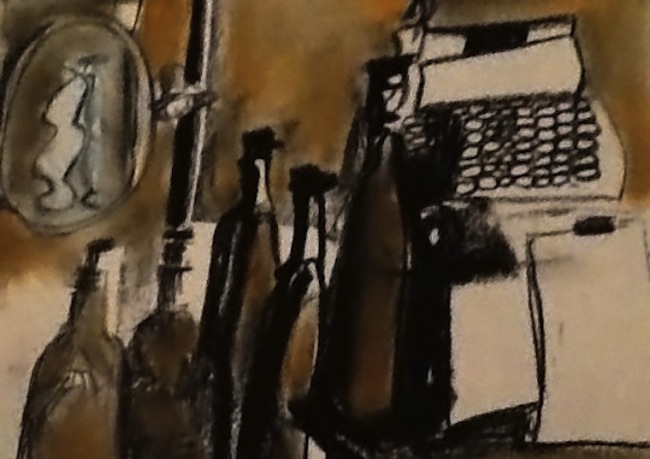Relationship finds its own level.
Generally it looks like we [and others] choose — a boy’s entreatment rejected, an attorney makes partner, 158 million of us vote — but there is a finality to much that we ostensibly do. This is how such absurdities as determinism gain purchase, how authors can talk and be misunderstood in saying characters just up and do things. Hence Nabokov swinging for the other fence — ‘My characters are galley slaves.’
Re-reading Jayber Crow, it occurred as to how certain folk just were what they were. The first ones Port William’s barber encounters — as one does not just walk into Mordor, one never simply is with anyone in Wendell Berry books, tho that is how it sometimes starts, and as Jayber’s relationship to who he is and where that will be continues to find its level, he is with Burley Coulter, Matt Feltner, and Sam Hanks.
Burley is in the membership — deeply, to read the best story, ‘Fidelity’ in That Distant Land — but lives at its fringe
Matt is at its core — attorney, office in town, on the bank’s board, fighting — civilly, calmly — for its past as its future
Sam, also within but no farm: he transports to others what the town makes; hybrid not as set apart as Burley, and yet …
Jayber also will be largely in but not of — he never marries, loves his only girl ever at a distance — but not the same as Sam or Burley. Sam, one presumes, has a wife, sees the entire community intimately all the time, every day, in his work; Burley has the woman and, with her, their son, and has walked every inch of the land twice while awake, thrice again and again, no doubt, in his sleep.
Faulkner’s families are the same, of course — if anything even more pronounced and of course symbolic — and the elves, dwarves, orcs even, and hobbits and humans, have their places in Tolkien, where a man may pursue kingly [Aragorn], succumb to flaw [Boromir], or descend depraved [Gollum] but never be anything other than man.
Those who make worlds must make relationship.
Rather, those who do will find relationship there.
+
We are what we are — dance with who brung ya, as a saying I’ve said prolly far too often goes — and this sounds again determinist.
It’s quite not.
If freedom is the right to do what we want [it isn’t, but work with me for a sec] then an ultimate expression of it cd be to do … naught.
Neither meanderingly nor yawningly nor nihilistically but to consciously, intentionally … not. Whether waiting or rising above or … it does not matter the specific as long as it first matters a great deal … is not the freest of us one who can simply sit, stay?
Coiled, calm, strong, resolute, ready-willing-able …
Big Papi, just the moment before … well, you know.
Anyway, that’s how it starts.
Now.
If freedom is the ability to do good [and it is] then the ultimate expression of that wd be to do naught, near to One who waits … a lot. It, the doing Nothing in utter acceptance of the vitality [meant literally — power giving continuance of life] of that, realizing one’s place + role, seeing that we are thus despite possibly decades of pretense and a thousand million choices going every which way …
Whoa.
Yoikes.
Behold the man.
